Frantz Blu-ray Movie
HomeFrantz Blu-ray Movie 
Music Box Films | 2016 | 113 min | Rated PG-13 | Jun 13, 2017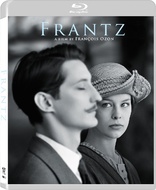
Movie rating
7.3 | / 10 |
Blu-ray rating
| Users | 0.0 | |
| Reviewer | 4.0 | |
| Overall | 4.0 |
Overview
Frantz (2016)
Taking place after WWI, Frantz follows a young German woman who grieves the death of her fiancé in France, and a mysterious French man who visits the fiance’s grave to lay flowers.
Starring: Pierre Niney, Paula Beer, Marie Gruber, Cyrielle Clair, Alice De LencquesaingDirector: François Ozon
| Foreign | 100% |
| War | Insignificant |
| Drama | Insignificant |
| History | Insignificant |
| Romance | Insignificant |
Specifications
Video
Video codec: MPEG-4 AVC
Video resolution: 1080p
Aspect ratio: 2.39:1
Original aspect ratio: 2.39:1
Audio
German: DTS-HD Master Audio 5.1
German: DTS-HD Master Audio 2.0
Subtitles
English SDH, French
Discs
Blu-ray Disc
Single disc (1 BD)
Playback
Region A (B, C untested)
Review
Rating summary
| Movie | 4.0 | |
| Video | 4.5 | |
| Audio | 4.5 | |
| Extras | 2.0 | |
| Overall | 4.0 |
Frantz Blu-ray Movie Review
Reviewed by Jeffrey Kauffman June 16, 2017It’s probably intentionally ironic that the titular character in Frantz is a German, despite the fact that the pronunciation of his name is almost a homonym for how a native Frenchmen at least would pronounce the name of Germany’s nemesis in World War I, the aftermath of which is the temporal setting of the film. In some ways considerably less intentionally provocative and considerably more chaste than some other François Ozon films (8 Women, Swimming Pool, Potiche, In the House), Frantz has a rather interesting “ancestry”, tracing back to a play called L'homme que j'ai tué by Maurice Rostand (son of Edmond Rostand, who famously wrote Cyrano de Bergerac), which was in turn adapted into a rare Ernst Lubitsch drama in 1932 called Broken Lullaby. Those with an understanding of French may already have a clue as to a major “secret” at play in the subtext of Frantz, wherein a German war widow (more or less, anyway — more about that in a moment) named Anna (Paula Beer) is almost ineluctably drawn to a French man named Adrien (Pierre Niney), who shows up at the grave of Anna’s beloved. A halting relationship follows, but there are both personal and societal issues at play that keep this romance from easily getting to that vaunted happily ever after stage. Frantz is a really interesting effort from Ozon, one which seems a bit more measured in pacing than some of his other work, and one which employs a visually arresting but perhaps unneeded stylistic conceit wherein black and white footage morphs into something approaching color and back again at several key moments.

World War I has recently ended, and in the German town of Quedlinburg, Anna regularly grieves at the grave of her fiancé Frantz, who was killed in the hostilities (and so Anna is not technically a war widow, but you get the idea). She first notices new fresh flowers at the site that she did not leave there, and later spies an actual person standing at the foot of Frantz’s grave, obviously sorrowful and paying his respects. Anna lives with Frantz’s parents Magda (Marie Gruber) and Doctor Hoffmeister (Ernst Stötzner), and Magda at least is intrigued by the thought of a stranger visiting her son’s grave. When the stranger actually shows up to speak to the doctor, however, Hoffmeister upon hearing the man is French resolutely refuses to speak to him (thinking he’s there for some kind of treatment), hauling out a picture of Frantz and saying every Frenchman is responsible for the murder of his son. That turns out to be a perhaps too on the nose moment in the film, at least for those who haven’t already translated the original French title of the original play.
In the meantime, another patient named Kreutz, (Johann von Bülow) whom Doctor Hoffmeister does consent to treat since he’s a German, has eyes for Anna, and the Hoffmeisters actually encourage Anna to try to move on, even though she’s reluctant to, especially with someone like Kreutz. When Anna and Magda figure out that the man Doctor Hoffmeister sent packing is the same man as has been visiting Frantz’s grave, Anna sends an invitation to his hotel and soon enough he returns, albeit very shyly, to the Hoffmeister home, where he introduces himself as Frantz’s friend from Paris Adrien. There’s some rather interesting misdirection going on here, again mostly for those who don’t know the source material (or the Lubitsch version), for in never overt but still rather noticeable fashion, Ozon gently hints that perhaps Adrien and Frantz were more than merely “friends”, and in fact I almost feel like Ozon, who can be kind of a trickster at times, is provocatively and quite intentionally playing with a jaded audience’s post-modern sensibilities as to what the subtext of the relationship between Adrien and Frantz actually was, especially since it seems to be fraught with such emotion on the part of Adrien.
One way or the other, the history between the two characters is both more mundane and ultimately much more profound than might be initially surmised, a history which plays out against a slowly developing relationship between Anna and Adrien, something that Kreutz and even Doctor Hoffmeister greet with some xenophobic umbrage (though Hoffmeister at least is quick to come around once he almost takes Adrien on as a surrogate son). The film is awash in the melancholy of memory, as well as an inescapably harsh tragedy (something that is perhaps presented a bit too melodramatically by Ozon, thereby weirdly robbing it of some of its power), and Frantz struggles at times with a romance which is both star-crossed and, finally, seemingly pointless.
Ozon seems to want to present a traditional tale of trauma and forgiveness, as well as a heartrending saga of two people who are both perfectly matched and mismatched. But there are certain odd elements at play, some of them stylistic, and some having to do with content. The whole stylistic gambit of having the film lapse in and out of color seems to serve no authentic emotional purpose (at least that I could discern), and instead serves mostly to call attention to itself. But for what is really one of Ozon’s undeniably most heartfelt offerings, one without the snark and snap of some of his other films, there’s also an almost bizarre astringent quality lying just beneath a somewhat saccharine surface. That includes the odd, almost funny, closing moments of the film when Anna gazes at Manet’s little known miniature Le Suicidé and comments how much she likes it because it makes her feel alive.
Frantz Blu-ray Movie, Video Quality 
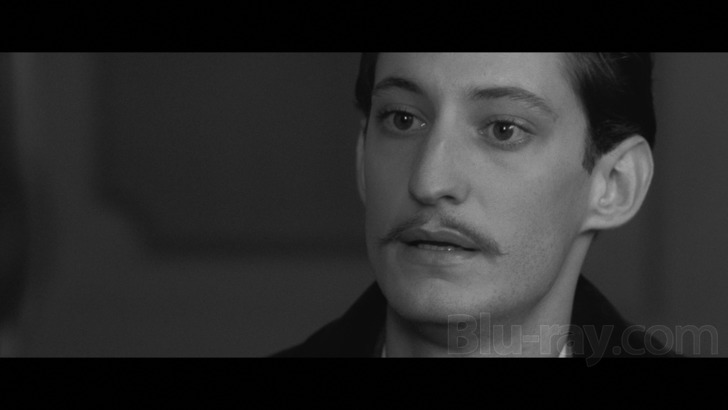
Frantz is presented on Blu-ray courtesy of Music Box Films with an AVC encoded 1080p transfer in 2.39:1. Kind of interestingly, the IMDb lists this as having been shot on good old fashioned celluloid with Arricam LT and ST cameras, though the actual look of the film is (at times at least) much more reminiscent of modern digital capture, especially with regard to the transitions between the black and white and color elements. Detail levels are uniformly excellent, and the black and white sequences offer good delineation of gray scale. As can be seen in some of the screenshots accompanying this review, the "color" sequences almost resemble the old Handschiegl process, with some parts of the frame still being in black and white (see screenshot 5), and even those moments without any black and white elements rarely rising to saturation levels most modern viewers will be familiar with. The entire transfer has a nicely organic appearance one way or the other, despite the obvious tweaking the image has undergone, and as usual Ozon and cinematographer Pascal Marti offer some sumptuous framings that offer some beautiful views of various German locations.
Frantz Blu-ray Movie, Audio Quality 
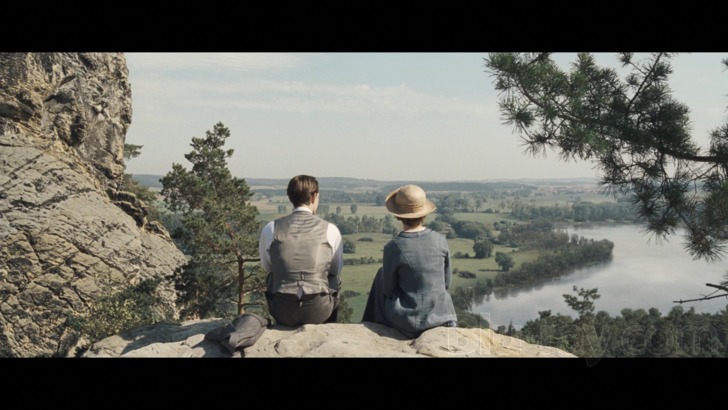
Frantz features DTS-HD Master Audio 5.1 and 2.0 mixes that are about evenly split between German and French (the disc is authored to show German in a disc drive, so that's the language I've put in the specs above). While ostensibly not really very showy, the surround track does have moments of quite excellent immersion, courtesy of both on screen music performances (Adrien is a violinist and Anna is a pianist), but also underscore and a number of outdoor scenes as well as occasional crowd sequences where a wealth of ambient sounds dot the surround channels. That said, this is a fairly subtle track that never really overtly calls attention to itself. Fidelity is fine throughout, as is prioritization.
Frantz Blu-ray Movie, Special Features and Extras 
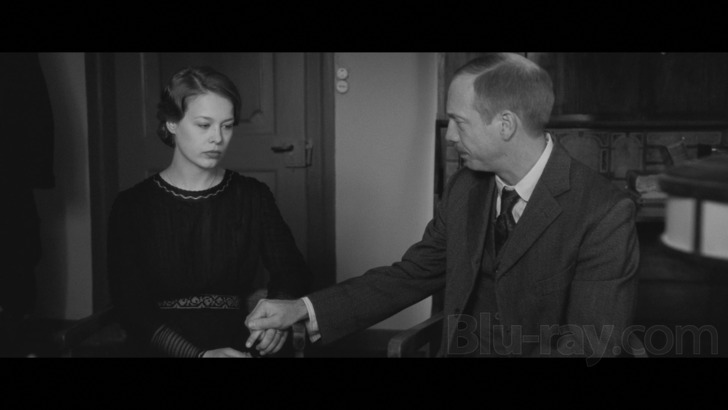
- Director Q&A with François Ozon (1080p; 17:38) is hosted by Dennis Lim of the Film Society of Lincoln Center. In English, but without English subtitles which might have helped with some of Ozon's fairly heavily accented English.
- Scenes from the Venice Premiere (1080p; 5:38)
- Deleted Scenes (1080p; 12:48)
- Costume and Light Tests (1080p; 4:00)
- Poster Gallery (1080p; 2:29) utilizes some kind of cool looking dissolves which reveal slight differences in things like typography.
- Theatrical Trailer (1080p; 2:08)
Frantz Blu-ray Movie, Overall Score and Recommendation 
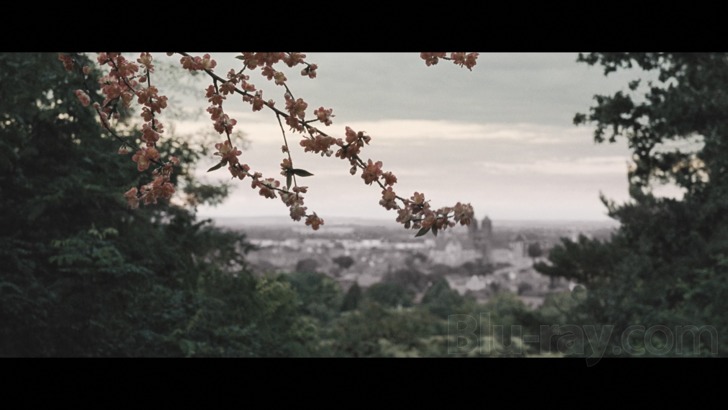
I'm admittedly kind of fond of some of Ozon's artier tendencies, and stylistically at least they're on full display in Frantz, though as outlined above I'm not quite sure how helpful or even necessary they are. Content wise this is kind of an odd duck in Ozon's filmography, but it has some potent subtext about war and nationalism that helps it overcome some otherwise melodramatic plot mechanics. The film offers excellent performances and the disc offers excellent technical merits. Recommended.
Similar titles
Similar titles you might also like
(Still not reliable for this title)

Forbidden Games
Jeux interdits
1952

La Grande Illusion
Grand Illusion
1937

Jules and Jim
Jules et Jim
1962

Wings
1927

Corpus Christi
Boże Ciało
2019

A Hidden Life
2019

Overlord
1975

L' Argent
1928

Wooden Crosses
Les croix de bois
1932

Le Notti Bianche
White Nights
1957

A Tale of Autumn
Conte d'automne / Autumn Tale
1998

Senso
1954

Lebanon
2009

A Very Long Engagement
Un long dimanche de fiançailles
2004

Rust and Bone
De rouille et d'os
2012

Westfront 1918
Westfront 1918: Vier von der Infanterie
1930

Ballad of a Soldier
Баллада о солдате / Ballada o soldate
1959

Hiroshima mon amour
1959

Le silence de la mer
1949

City of Life and Death
南京!南京! / Nanjing! Nanjing!
2009